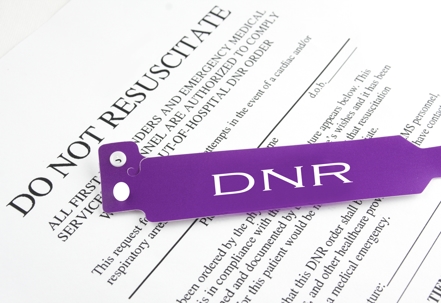Takeaways
- Do not resuscitate (DNR) orders instruct health care providers not to perform CPR or other life-saving measures if a patient's heart or breathing stops.
- DNRs offer a balance of benefits, including patient autonomy and avoiding unnecessary suffering, as well as drawbacks, such as potential for undertreatment or misinterpretations by health care providers.
If you stop breathing or your heart stops, health care providers will typically do everything they can to save your life, including cardiopulmonary resuscitation (CPR). However, some people choose to have a Do Not Resuscitate (DNR) order in place.
What Is a DNR?
A DNR order is a legal and medical document. It instructs health care providers not to use CPR or other measures to revive you if your heart or breathing stops. These lifesaving measures may include keeping your airway open with intubation, putting you on a ventilator, or using a defibrillator to shock your heart. Setting up a DNR involves a conversation with your provider about the benefits and drawbacks of these interventions.
Estate Planning Considerations
A DNR may therefore serve as only one aspect of a more comprehensive plan. Creating an estate plan with advance directives in addition to or instead of having a DNR order allows a person to express their wishes for care should they become unable to communicate.
A living will is a type of advance directive through which a person can limit the kinds of care they would like to receive. For instance, they can restrict treatments to those that would provide comfort and decline treatments that would only lengthen their life without improving its quality.
When a person also has in place a health care power of attorney — another type of advance directive — these documents work together to support their autonomy. In a health care power of attorney, a patient can appoint a surrogate decision-maker to act on their behalf. This allows them to select a trusted person to follow their wishes regarding medical decisions.
The patient can discuss their plans with their health care agent ahead of time. The power of attorney for health care can also outline the patient’s preferences for medical treatment, organ donation, and burial.
An estate planning attorney can help you navigate these types of complex health care decisions. They can also draft advance directives to reflect your wishes and a comprehensive estate plan that helps you approach illness and death with autonomy.
Source: ELA
Contact us online or call (925) 208-4543 to learn how Feldman Law Group can help you!

